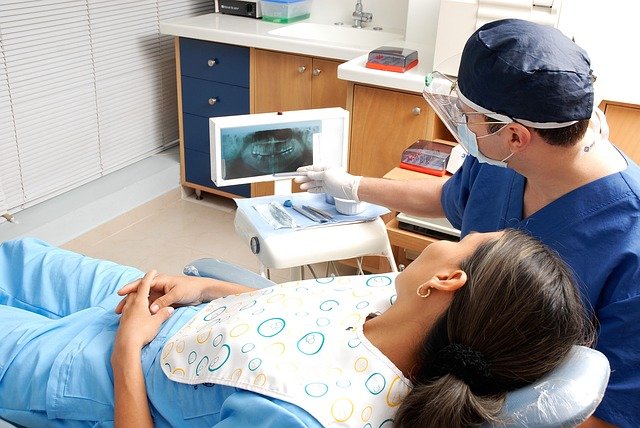Understanding the Causes of Bad Breath
Bad breath, commonly known as halitosis, affects a large number of individuals. Recent studies suggest that approximately 50% of adults encounter this issue at some point in their lives. Grasping the causes behind bad breath is essential for effective treatment and addressing this prevalent concern.

Bad breath stems from various factors, ranging from simple dietary choices to complex medical conditions. The most common culprit is bacterial buildup in the mouth, particularly on the tongue, between teeth, and along the gum line. These bacteria break down food particles and dead cells, producing sulfur compounds that create unpleasant odors.
Poor oral hygiene practices allow plaque and bacteria to accumulate, leading to tooth decay and gum disease. When bacteria multiply unchecked, they release volatile sulfur compounds that cause the characteristic smell associated with halitosis. Additionally, certain foods like garlic, onions, and spicy dishes contain compounds that enter the bloodstream and are expelled through the lungs, creating temporary but noticeable breath odor.
How to Get Rid of Bad Breath Instantly
Immediate relief from bad breath can be achieved through several quick methods. Thorough brushing and flossing remove food particles and bacteria from teeth and gums. Using an antibacterial mouthwash helps eliminate remaining bacteria and provides temporary freshening effects. Scraping or brushing the tongue removes bacterial buildup from this often-overlooked area.
Chewing sugar-free gum stimulates saliva production, which naturally cleanses the mouth and neutralizes acids. Drinking plenty of water keeps the mouth moist and helps wash away food particles and bacteria. Fresh herbs like parsley, mint, or cilantro can provide natural breath freshening when chewed.
Medication for Bad Breath
Several medical treatments address chronic bad breath when home remedies prove insufficient. Prescription antimicrobial mouth rinses contain stronger active ingredients than over-the-counter options. Antibiotics may be prescribed when bacterial infections in the mouth or respiratory system contribute to halitosis.
Specialized toothpastes containing enzymes or oxygenating agents help break down odor-causing bacteria. For dry mouth conditions that contribute to bad breath, artificial saliva products or medications that stimulate saliva production may be recommended. In cases where underlying medical conditions cause halitosis, treating the root condition often resolves the breath problem.
Bad Breath Cure Solutions
Long-term bad breath management requires addressing underlying causes rather than masking symptoms. Professional dental cleanings remove tartar and plaque that regular brushing cannot eliminate. Treating gum disease through scaling and root planing procedures reduces bacterial populations in periodontal pockets.
For individuals with chronic dry mouth, identifying and addressing the cause is crucial. This may involve adjusting medications, treating underlying conditions, or using specialized products to maintain oral moisture. Regular dental checkups help identify and treat oral health issues before they contribute to persistent bad breath.
Private Treatment for Bad Breath
Specialized breath clinics and private dental practices offer comprehensive halitosis treatment programs. These services typically include detailed oral examinations, bacterial testing, and personalized treatment plans. Some facilities use advanced diagnostic tools to identify specific bacterial strains and tailor treatments accordingly.
| Treatment Type | Provider | Cost Estimation |
|---|---|---|
| Professional Dental Cleaning | General Dentist | $75-200 |
| Specialized Breath Clinic Consultation | Halitosis Specialist | $200-500 |
| Antimicrobial Therapy | Periodontist | $300-800 |
| Comprehensive Oral Health Assessment | Private Dental Practice | $150-400 |
Prices, rates, or cost estimates mentioned in this article are based on the latest available information but may change over time. Independent research is advised before making financial decisions.
How to Remove Bad Breath Naturally
Natural remedies offer gentle alternatives for managing bad breath without harsh chemicals. Oil pulling with coconut oil helps reduce bacterial populations in the mouth. Green tea contains polyphenols that inhibit bacterial growth and provide antioxidant benefits. Probiotics support healthy oral bacteria balance and may reduce harmful bacterial overgrowth.
Baking soda rinses neutralize acids and create an environment less favorable to odor-causing bacteria. Apple cider vinegar, when properly diluted, can help balance oral pH levels. Regular consumption of crunchy fruits and vegetables like apples and carrots helps mechanically clean teeth and stimulate saliva production.
Maintaining proper hydration supports natural saliva production, which is the body’s primary defense against bacterial buildup. Avoiding tobacco products and limiting alcohol consumption prevents dry mouth conditions that contribute to halitosis. Stress management techniques may also help, as stress can affect saliva production and oral health.
Persistent bad breath that doesn’t respond to improved oral hygiene or natural remedies warrants professional evaluation. Underlying medical conditions such as diabetes, liver disease, or respiratory infections can manifest as chronic halitosis. Early identification and treatment of these conditions not only improve breath quality but also support overall health and well-being.
This article is for informational purposes only and should not be considered medical advice. Please consult a qualified healthcare professional for personalized guidance and treatment.




